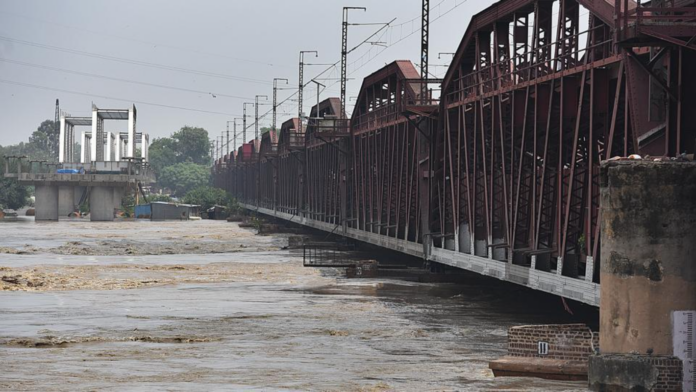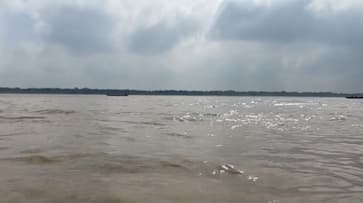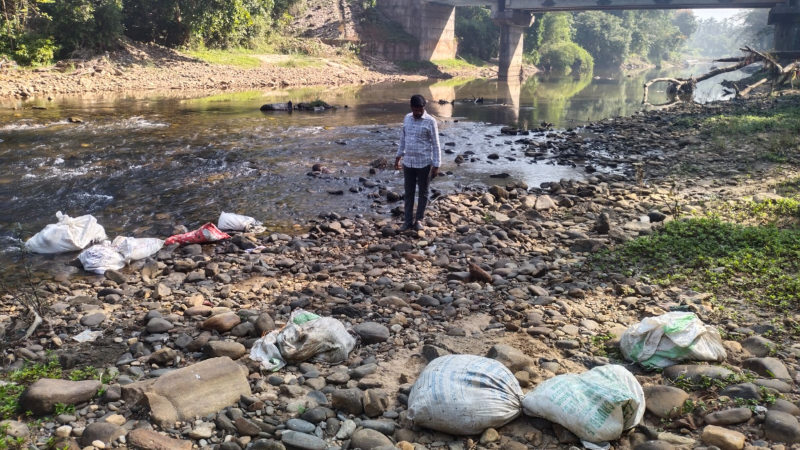Beef waste in Karnataka has triggered widespread outrage after reports emerged of its alleged dumping in the Mrityunjaya River in Belthangady taluk. The incident, which has contaminated the river—a tributary of the Netravati—has sparked protests from Hindu organizations and environmental activists. The issue has raised serious concerns over river pollution and its impact on public health and ecology.
The protests are scheduled to culminate in a rally on January 6, where activists and local communities will demand accountability and swift action from authorities. This episode not only highlights the growing concern over environmental degradation but also underscores the cultural and religious sensitivities surrounding such acts.
The River Pollution Incident
The Mrityunjaya River, a crucial water source for nearby villages, was allegedly contaminated when beef waste was dumped into its waters. Activists claim that the waste has caused visible pollution, leading to foul smells and potential harm to aquatic life. Such contamination can have a cascading effect on local ecosystems and the livelihoods of people dependent on the river for fishing and agriculture.
Reports indicate that the dumping of beef waste was deliberate, although the exact motive remains unclear. This act has not only violated environmental norms but has also hurt religious sentiments, given the significance of cow protection in Hinduism.
Local Community Outrage
The local community’s reaction has been one of anger and despair. For many residents, the river is more than a water source; it is a cultural and spiritual symbol. The contamination has thus been seen as a direct attack on their traditions and way of life.
Hindu organizations have been vocal about their demands for justice. “This is not just about religion; it is about respecting nature and preserving it for future generations,” said a local activist. Many groups have called for stringent action against those responsible, including criminal charges and environmental penalties.
Environmental Impacts Of River Pollution
River pollution is a critical issue that affects both humans and wildlife. Contaminants such as beef waste introduce harmful bacteria and pathogens into the water, posing severe health risks to communities that rely on the river.
The ecological balance is also disrupted, as polluted water can harm fish populations and other aquatic organisms. In the long term, this can lead to reduced biodiversity and weakened ecosystems, making the area more vulnerable to environmental challenges like droughts and floods.
Experts warn that such incidents could also affect groundwater quality. If pollutants seep into the soil, they can contaminate underground water reserves, further exacerbating the problem.
Government And Activist Response
The Karnataka government has assured residents that an investigation is underway to identify the culprits. Authorities have also pledged to implement stricter monitoring and penalties to prevent such incidents in the future.
Environmental activists have called for immediate cleanup efforts to mitigate the damage. “We cannot afford to wait. Every day that passes increases the harm to the river and the people who depend on it,” said an environmentalist from Mangaluru.
The incident has also led to demands for better waste management systems in the region. Activists argue that illegal dumping is a symptom of broader systemic issues, including inadequate waste disposal facilities and lack of enforcement of environmental regulations.
Legal Ramifications And Accountability
Dumping waste in rivers violates several environmental laws in India, including the Water (Prevention and Control of Pollution) Act, 1974. Offenders can face significant fines and imprisonment. However, activists argue that enforcement remains weak, allowing such incidents to occur repeatedly.
The Hindu organizations leading the protests have also emphasized the cultural aspect of the crime, demanding action under laws that protect religious sentiments. This dual approach highlights the need for both environmental and social accountability in addressing the issue.
A Broader Conversation On Environmental Conservation
This incident has reignited discussions about the importance of environmental conservation in India. Rivers are lifelines for millions of people, and their protection is crucial for sustainable development. Activists and environmentalists are urging both the government and citizens to adopt a more proactive approach to preserving natural resources.
The focus has also shifted to education and awareness. Many believe that community-driven initiatives can complement governmental efforts, creating a more holistic approach to tackling pollution. For instance, local groups can organize clean-up drives, while schools can introduce environmental education to instill values of conservation from a young age.
Call For Action
The “Parali Ke Badle Govansh Khaad” initiative in Uttar Pradesh, which encourages the use of cow manure instead of stubble burning, has been cited as an example of innovative approaches to managing waste. Activists are calling for similar initiatives in Karnataka to address beef waste and other forms of pollution sustainably.
The focus must be on long-term solutions that not only penalize offenders but also provide alternatives that benefit both the environment and the community. By investing in waste management infrastructure and promoting awareness, incidents like the one in Belthangady can be prevented in the future.
The Road Ahead
As the protests continue and investigations unfold, the incident serves as a wake-up call for both citizens and authorities. It is a reminder of the fragile balance between human activity and the environment, and the dire consequences of neglecting this balance.
The people of Belthangady and environmental activists across Karnataka are united in their demand for justice and sustainable practices. Their efforts underscore the importance of collective action in addressing complex issues like river pollution and environmental degradation.
The outrage over beef waste in Karnataka is more than just a local issue; it is a call to action for a nation grappling with the challenges of development and sustainability. By addressing these challenges head-on, India can pave the way for a greener, cleaner future.



